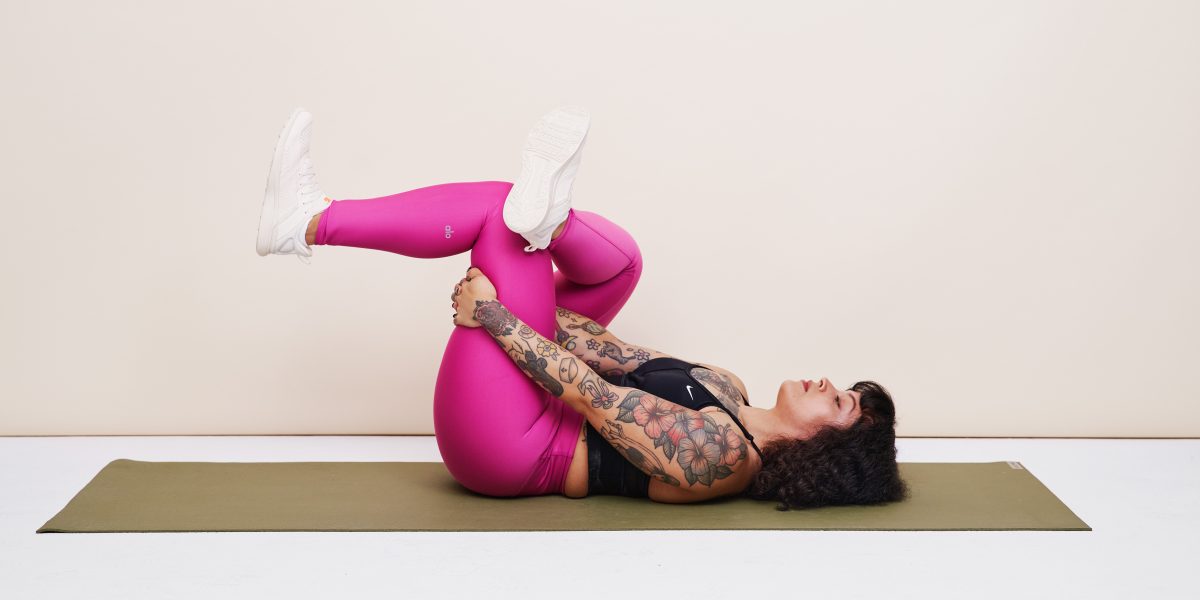If you’re dealing with aches, creakiness, or any other joint discomfort in your legs, we have good news for you: Doing stretches for knee pain can actually make a big difference in how you feel.
The best knee stretches may not look exactly as you pictured, though. That’s because easing soreness there actually starts with addressing areas that may seem pretty far away. Not really what you’d expect, right? Here’s what you need to know.
Improving strength and flexibility are both important factors here.
That’s because pain in your knees often develops (or worsens) because of weakness or tightness in the muscles and tendons that connect to the that joint—specifically, the ones in your hips, butt, and both upper and lower legs, Dan Giordano, DPT, CSCS, cofounder of Bespoke Treatments Physical Therapy, tells SELF. Think of the muscles from your hips to your toes as the parts of a long assembly line, all working together to help support your joints as you move. Since they’re all connected, when one is compromised, it can affect the others.
Let’s talk about weakness real quick. If you’ve got achy knees, building strength in the areas that support that joint is important, since those muscles can help reduce stress and shock to it. That means doing strengthening exercises that work your core and entire lower body—like your hips, glutes, hamstrings, quads, calves, and even your feet, Dr. Giordano says.
But it’s not all about muscle strength: Improving your flexibility and range of motion in these areas is also important for easing knee joint pain. In particular, loosening up your hips can make a huge difference.
“The majority of the muscles that connect at the knee start at the hip,” Dr. Giordano explains. “So you need to keep the hips loose and strong first.”
The best stretches for knee pain
The following moves target your hips and those other important surrounding muscles that support your knees. No matter your workout routine of choice, these stretches can help keep the muscles limber, loose, and ready to do their job—which will better protect your knees from taking on too much impact and becoming strained.
If you tend to experience knee pain or discomfort due to tightness, Dr. Giordano suggests doing the following stretches every day, plus after every time you work out. Hold each for 30 seconds to a minute, depending on how tight you are.
One important caveat: Knee pain can also be the result of an injury. For example, runners tend to develop patellofemoral pain syndrome (known as runner’s knee), which is an overuse injury that causes a dull, achy pain in the kneecap when running uphill or going downstairs, as SELF previously reported. If you experience this kind of discomfort, or any knee pain that’s sharp, gets progressively worse, or comes with swelling or any kind of pop, get medical advice from a doctor or physical therapist before trying these moves.
